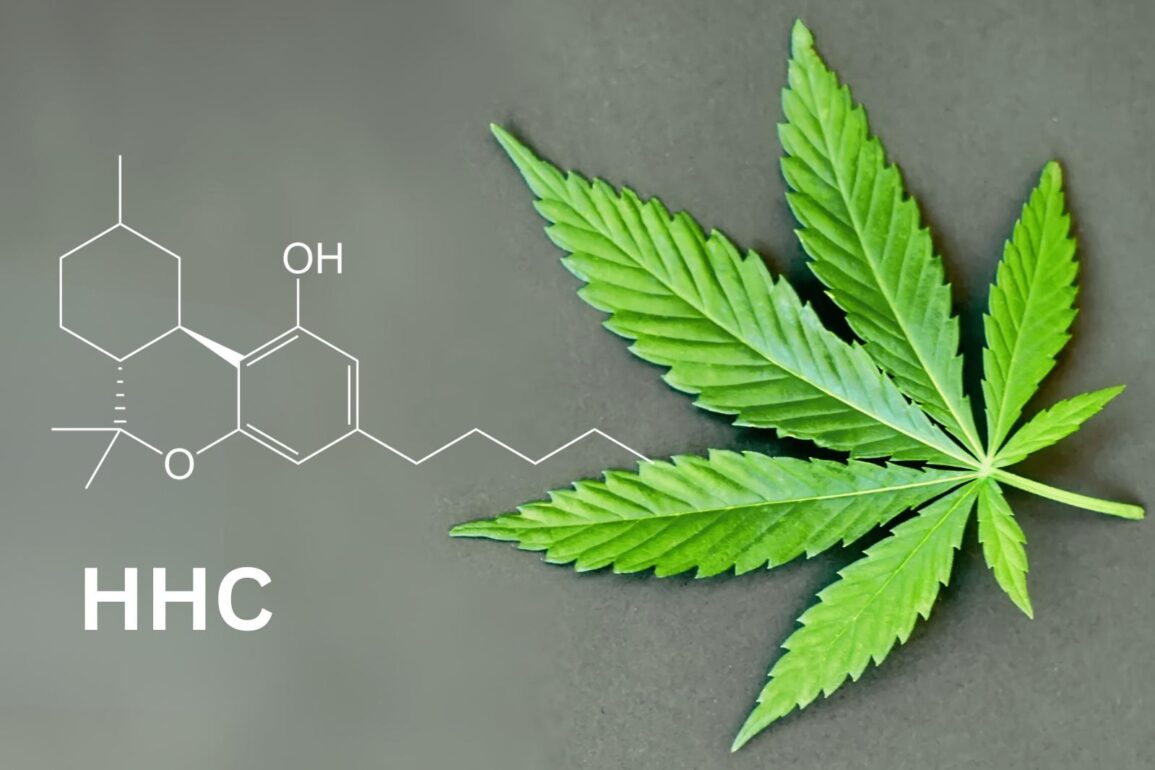In recent years, the world of cannabinoids has witnessed a surge in new compounds, including Hexahydrocannabinol (HHC). As researchers delve deeper into cannabis, they discover novel substances with potential effects and risks. HHC, a lesser-known cannabinoid, has sparked curiosity among cannabis enthusiasts and researchers alike. In this blog, we will explore What is HHC?, its potential psychoactive effects, the associated dangers, and where it can be found.
Table of Contents:
- Know More About HHC?
- Will HHC Make You High?
- What Are the Dangers of Cannabinoids Like HHC?
- Where Do You Get HHC?
- How Do People Use HHC Products?
- Is HHC Legal?
- Regulation and Safety Concerns
- Conclusion
Know More About HHC?
Hexahydrocannabinol (HHC) is a naturally occurring cannabinoid found in cannabis plants. It belongs to the same chemical family as THC (tetrahydrocannabinol), the psychoactive compound responsible for the “high” associated with marijuana use. However, HHC has a slightly different molecular structure, which gives rise to its unique properties and effects.
Will HHC Make You High?
One of the critical questions surrounding HHC is whether it produces intoxicating effects similar to THC. While research on HHC is still in its infancy, initial findings suggest that HHC may possess psychoactive properties. Some anecdotal user reports claim that HHC induces mild euphoria, relaxation, and a sense of calmness. However, it is essential to note that more research is needed to understand the extent of HHC’s psychoactive potential fully.
What Are the Dangers of Cannabinoids Like HHC?
As with any novel compound, there are potential dangers associated with HHC use. Since HHC is not well-studied and needs regulatory oversight, its safety profile still needs to be seen. Some of the potential risks include.
- Lack of Regulation: The lack of regulation means that the purity and potency of HHC products on the market may vary significantly. Users may be exposed to unknown contaminants or harmful additives.
- Health Risks: Regular and unmonitored use of any cannabinoid, including HHC, may lead to potential health risks. These risks could include respiratory issues, cardiovascular problems, or adverse psychological effects.
- Legal Implications: The legal status of HHC varies from country to country. Using or possessing HHC in areas where it is illegal can result in serious legal consequences.
- Addiction Potential: While HHC’s addictive potential is not yet fully understood, cannabinoids, in general, can lead to psychological dependence and addiction in some individuals.
Where Do You Get HHC?
As HHC gains attention in the cannabis community, some companies have started to produce and distribute products containing HHC. These products may come in various forms, such as vape cartridges, edibles, and tinctures. However, exercising caution when purchasing HHC products is crucial as they may not always be accurately labeled or subject to quality control.
Since the legality of HHC may vary depending on your location, it is essential to be well informed about local laws before attempting to purchase or use HHC products.
How Do People Use HHC Products?
HHC products are primarily utilized like other cannabis-derived compounds. While the research on HHC is still limited, users have reported a range of consumption methods, including
- Vaping: HHC-infused vape cartridges are becoming increasingly popular. These cartridges are heated in a vape pen or vaporizer, allowing users to inhale the vaporized HHC.
- Edibles: Some companies are formulating HHC-infused edibles, such as gummies, chocolates, and candies. Edibles provide an alternative method of consumption for those who prefer not to smoke or vape.
- Tinctures: HHC tinctures are liquid extracts that users can place under their tongues or mix with food or beverages. This method allows for precise dosage control.
- Topicals: HHC-infused topicals, such as creams and lotions, are designed for topical application to provide localized relief from discomfort.
- Inhalation: In some cases, HHC can be inhaled through traditional smoking methods, like rolling it into a joint or using a water pipe.
It is essential to emphasize that the safety and efficacy of HHC products have yet to be extensively studied, and individuals considering its use should exercise caution and conduct thorough research.
Is HHC Legal?
The legality of HHC varies from country to country and even from state to state within certain countries like the United States. Since HHC is a cannabinoid derived from cannabis, its legal status is often governed by the laws regulating cannabis and its derivatives.
In some regions, cannabis and its compounds, including HHC, remain classified as Schedule I substances, meaning they are considered illegal with no recognized medical use and a high potential for abuse. In such areas, possessing, selling, or using HHC products can lead to serious legal consequences.
On the other hand, some jurisdictions have decriminalized or legalized cannabis for medical or recreational use. In these areas, the legal status of HHC may need to be clarified, and regulations surrounding its production and distribution may vary.
Before considering using HHC products, it is crucial to research and understand the local laws and regulations regarding cannabis-derived compounds. It is also essential to verify the authenticity and legality of any HHC products being considered for purchase.
Regulation and Safety Concerns:
Due to the lack of federal regulation and oversight, the quality and safety of HHC products may be uncertain. Consumers risk exposure to contaminants or inaccurately labeled products without standardized manufacturing practices and quality controls.
Additionally, limited research on HHC raises concerns about potential side effects, interactions with other medications, and its long-term impact on health.
Conclusion:
HHC is an emerging cannabinoid that has captured the interest of cannabis enthusiasts and industry experts. While users have reported various consumption methods for HHC products, the lack of research and regulatory oversight poses significant challenges.
Understanding the legality of HHC is crucial, as its status can vary significantly depending on your location. Users must stay informed about local laws and regulations and exercise caution when considering HHC products.
Given the limited research on HHC, responsible use and informed decision-making are vital. As the cannabis industry evolves, further research on HHC and other cannabinoids will shed light on their potential benefits and risks. Until then, consumers should exercise prudence and opt for well-studied alternatives when exploring the world of cannabinoids.
Disclaimer – The contents of this article are provided solely for informational purposes and should not be considered medical advice. It is important to note that the information presented here is not meant to diagnose, treat, cure, or prevent any disease. Prior to embarking on any new health-related regimen, Always consult your healthcare provider before trying new supplements or treatments. Keeping you safe and well is our top priority. Additionally, it’s important to note that the FDA has not endorsed any claims regarding the health benefits of cannabis. Delta8Hub makes no guarantees or warranties regarding the accuracy, completeness, or usefulness of any messages contained here in

